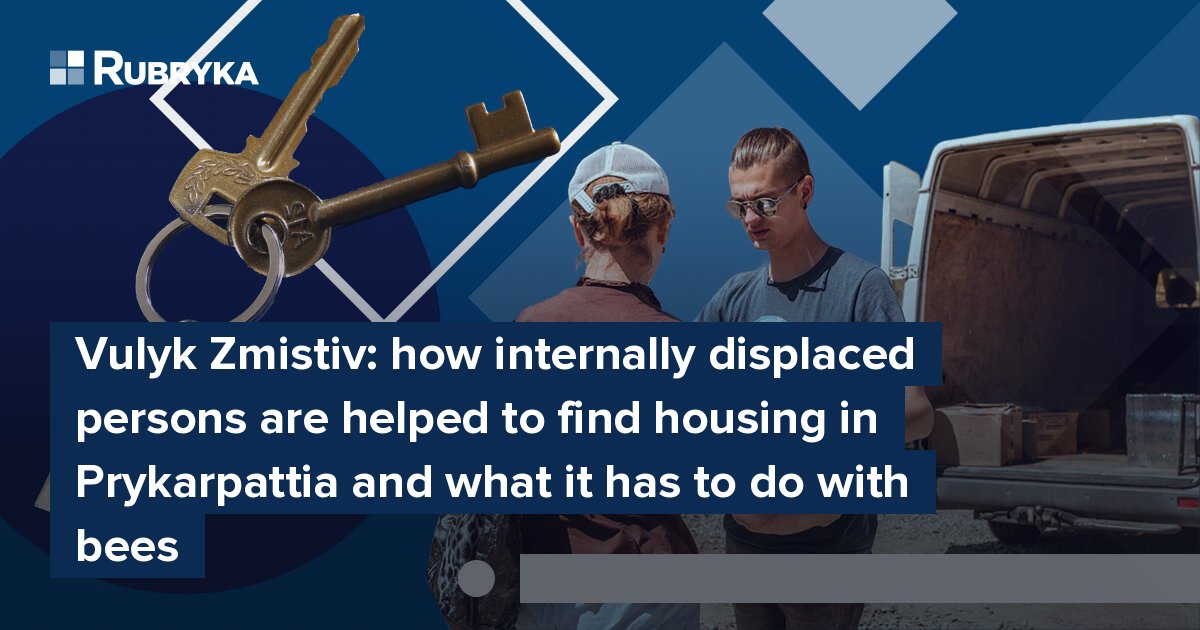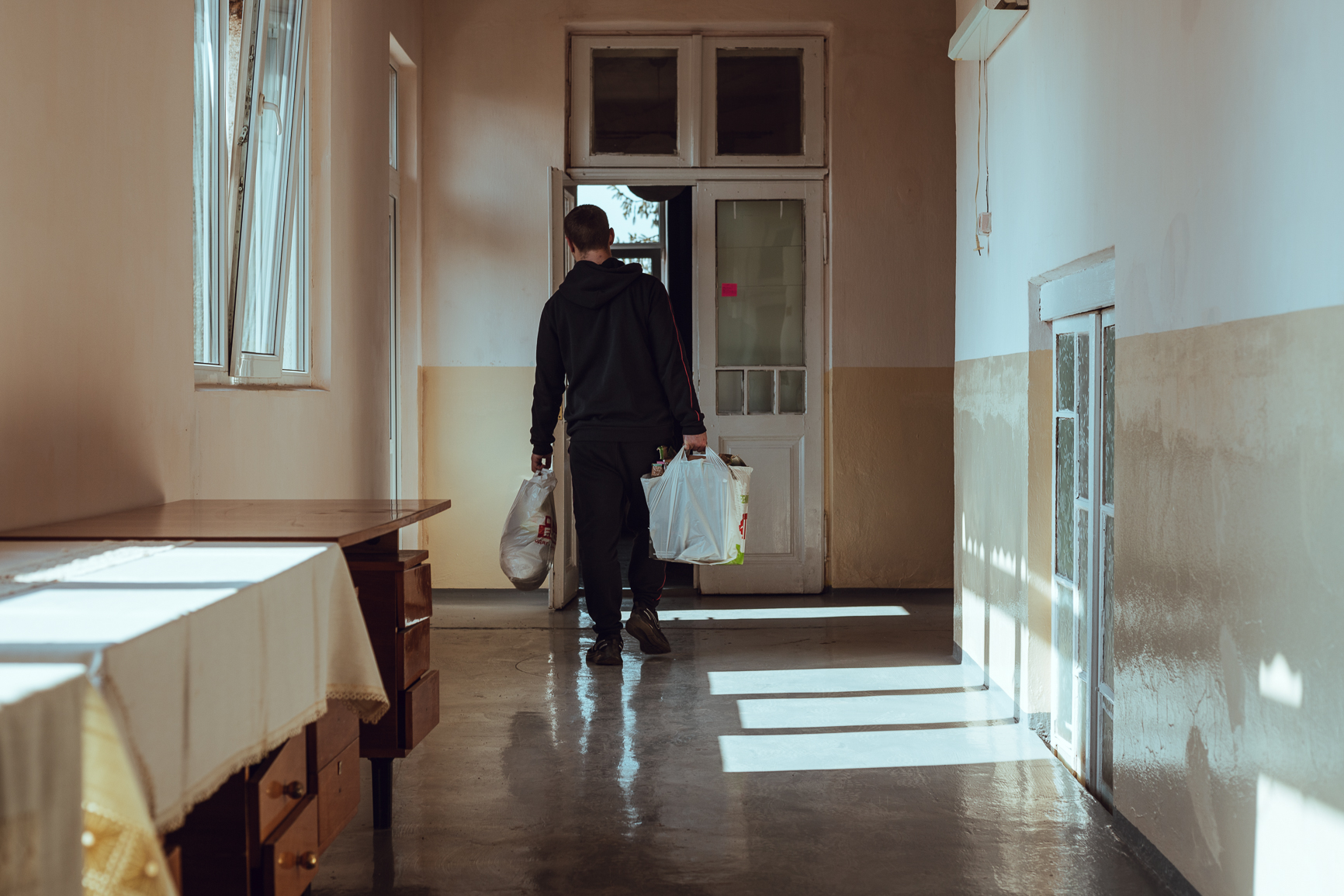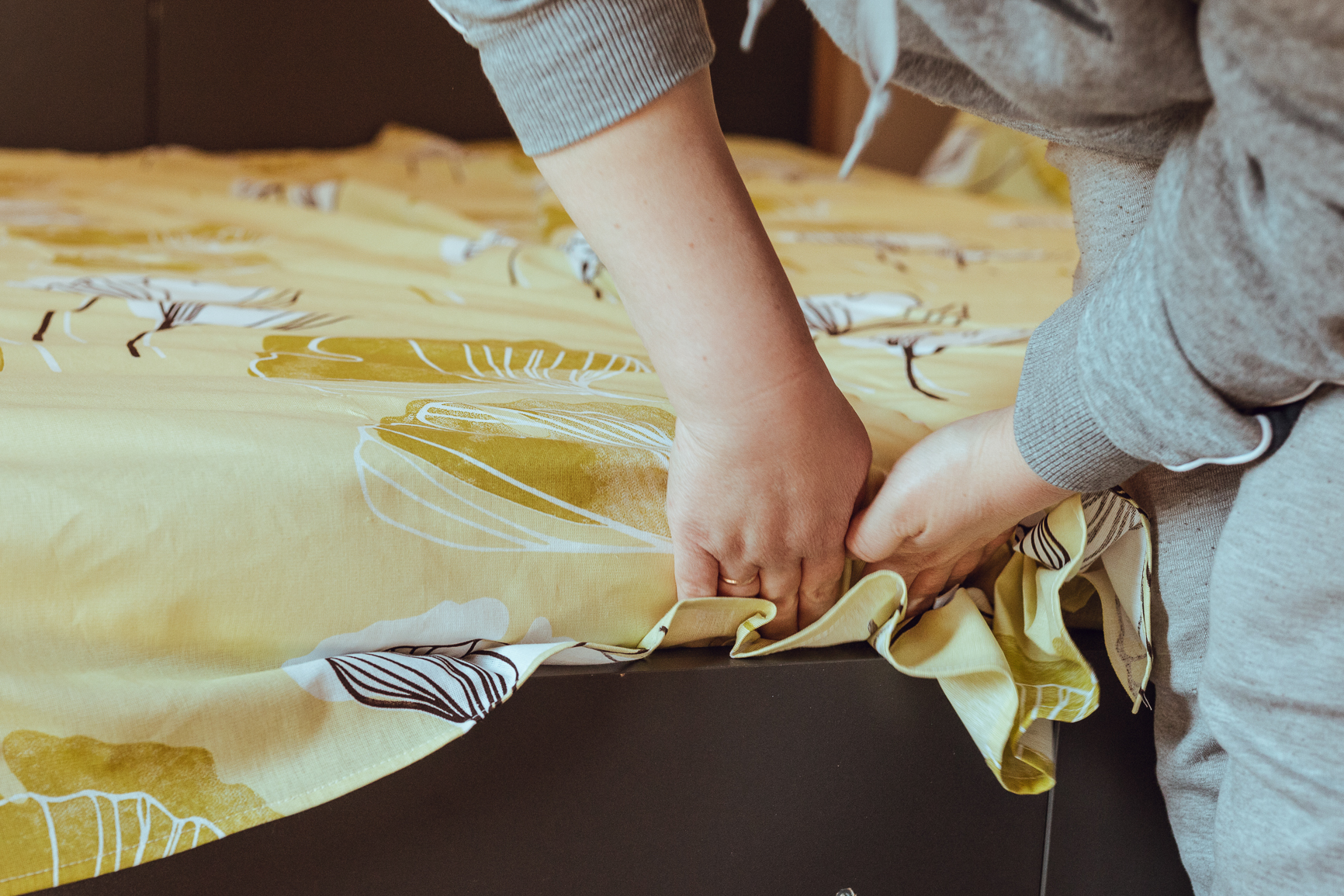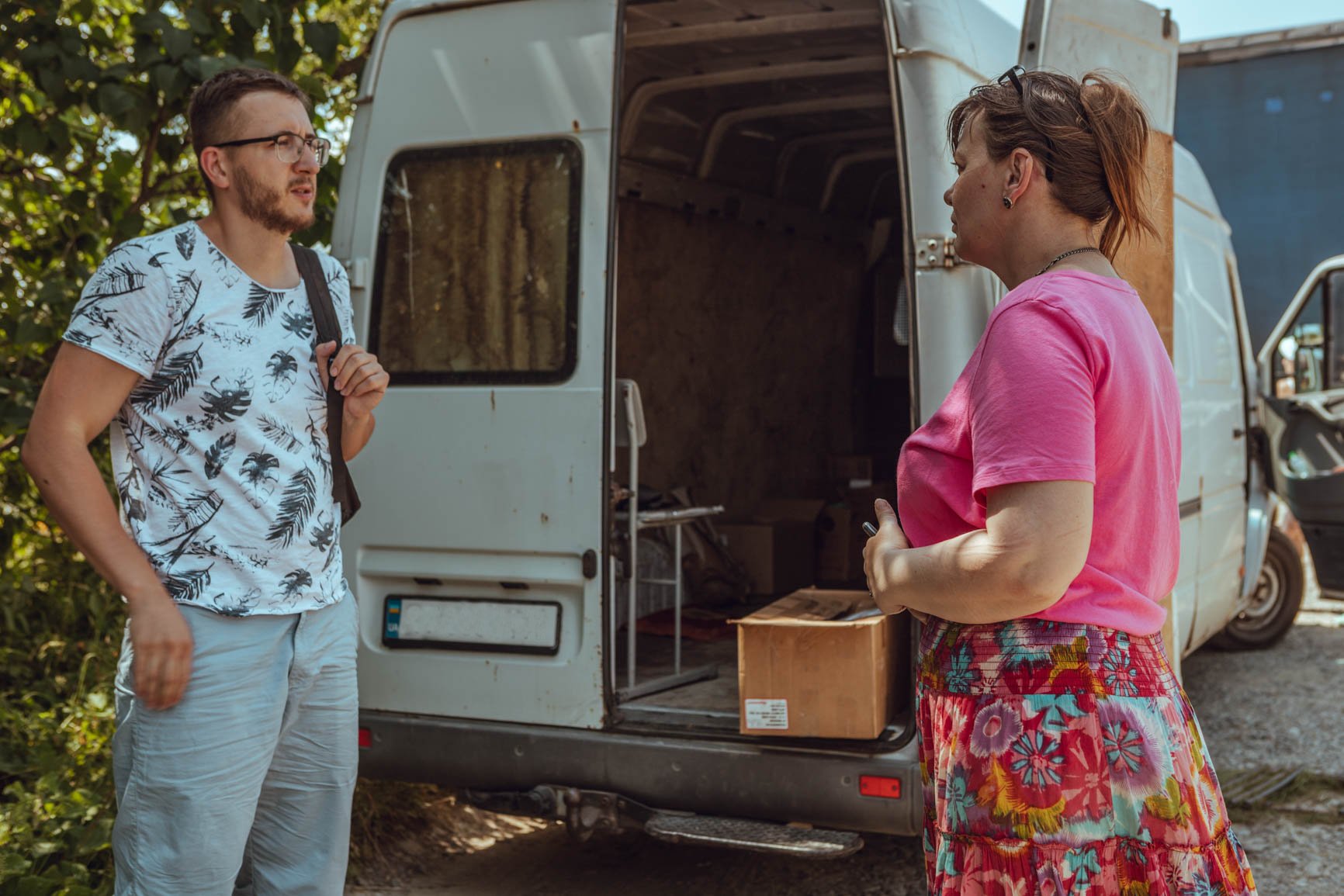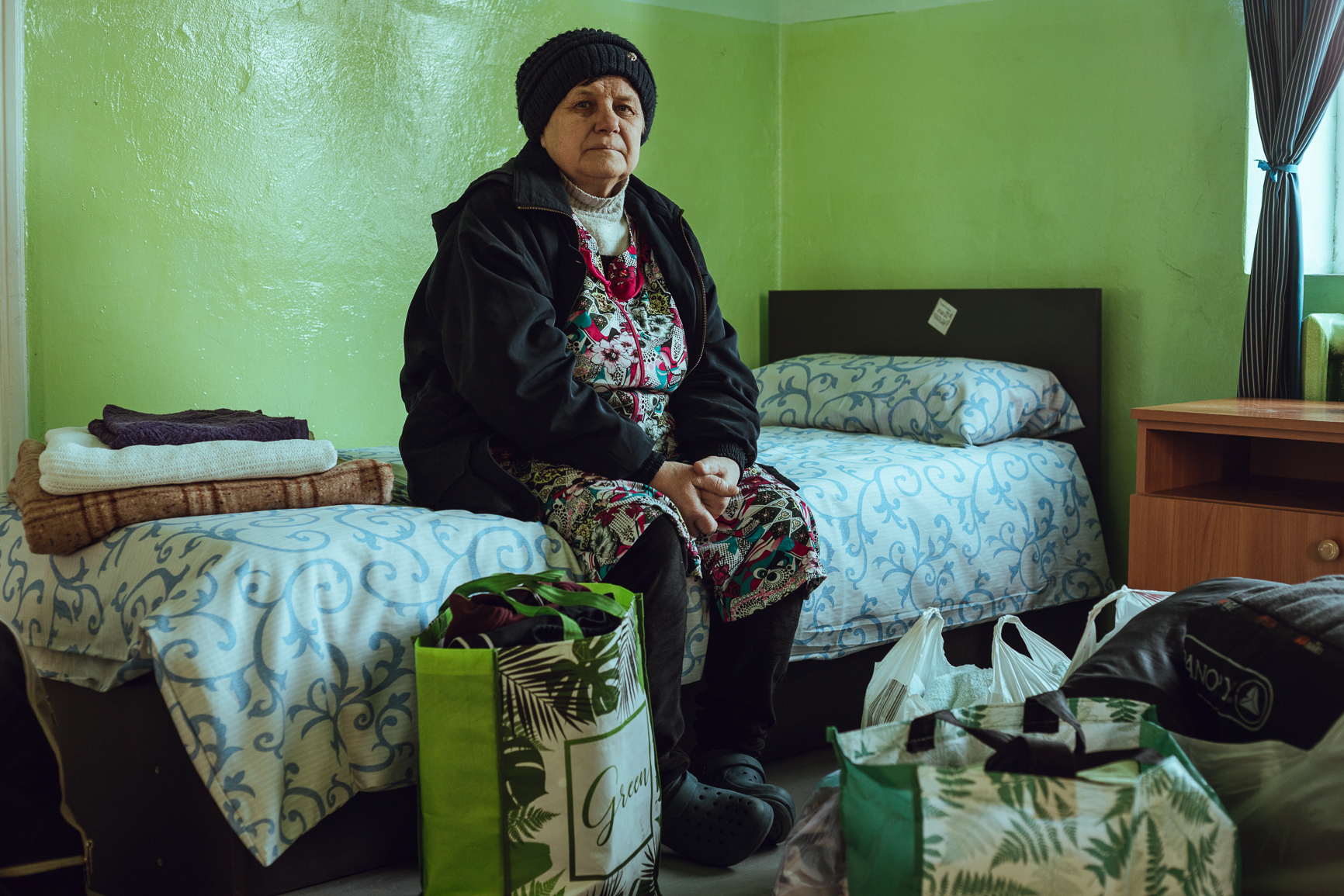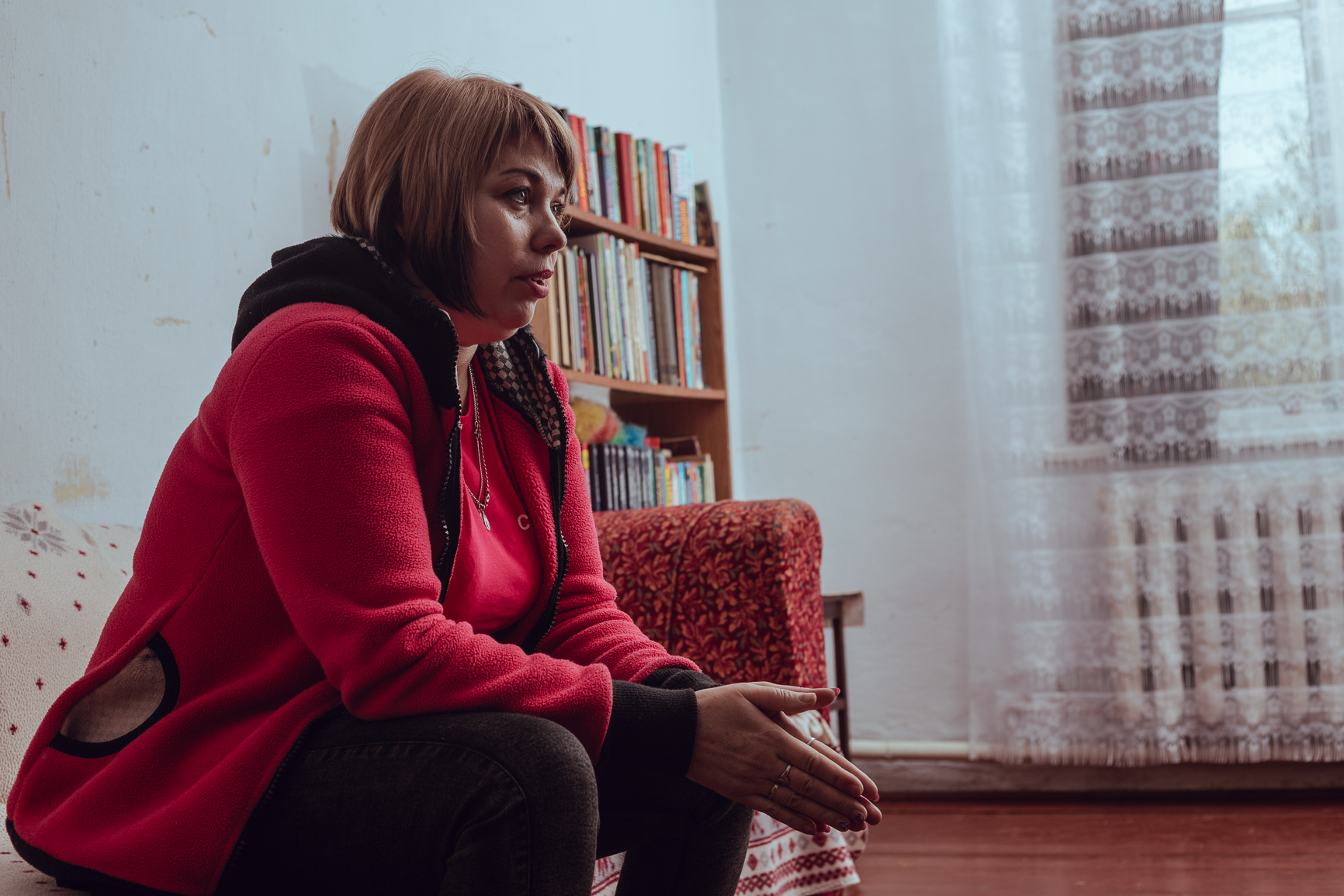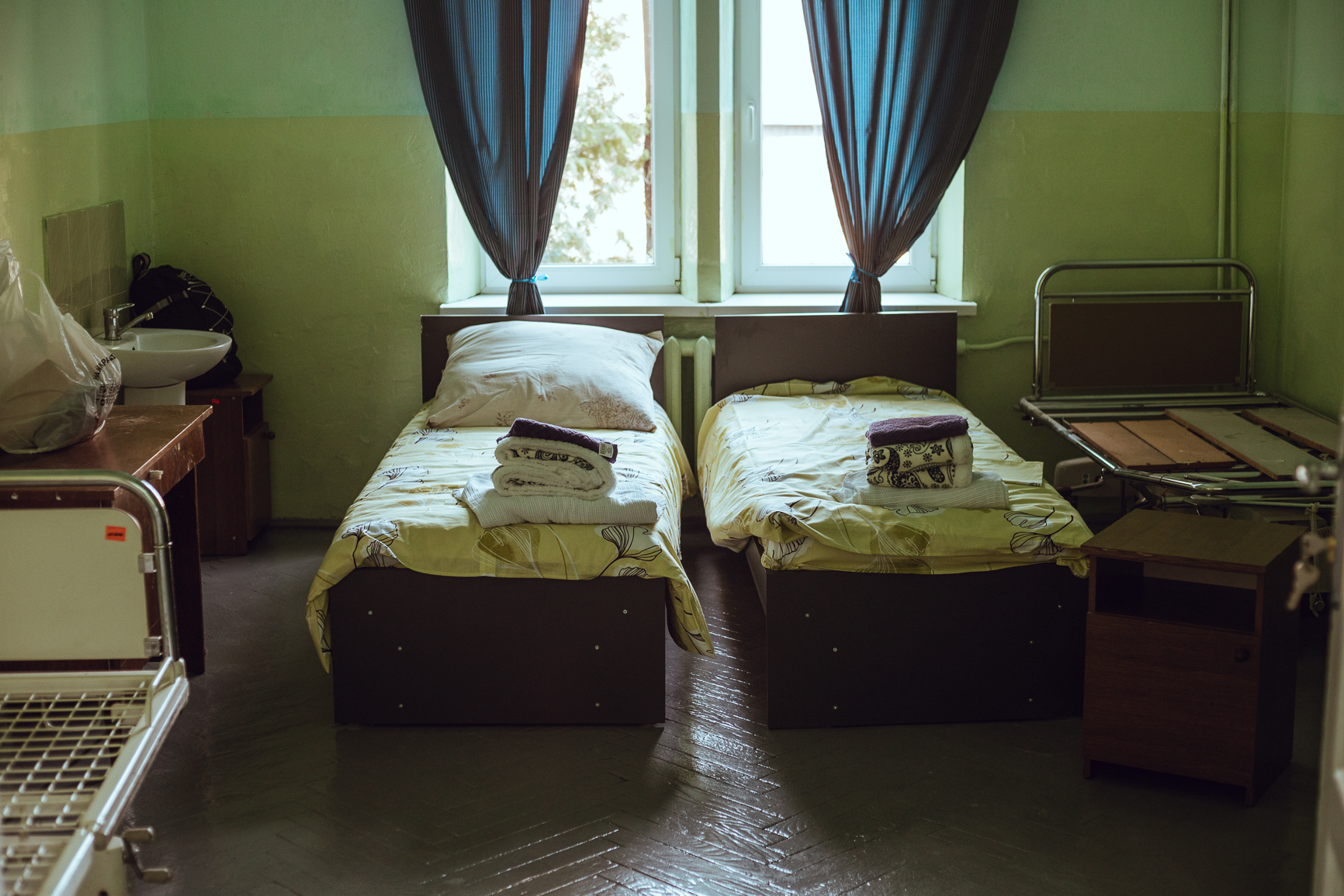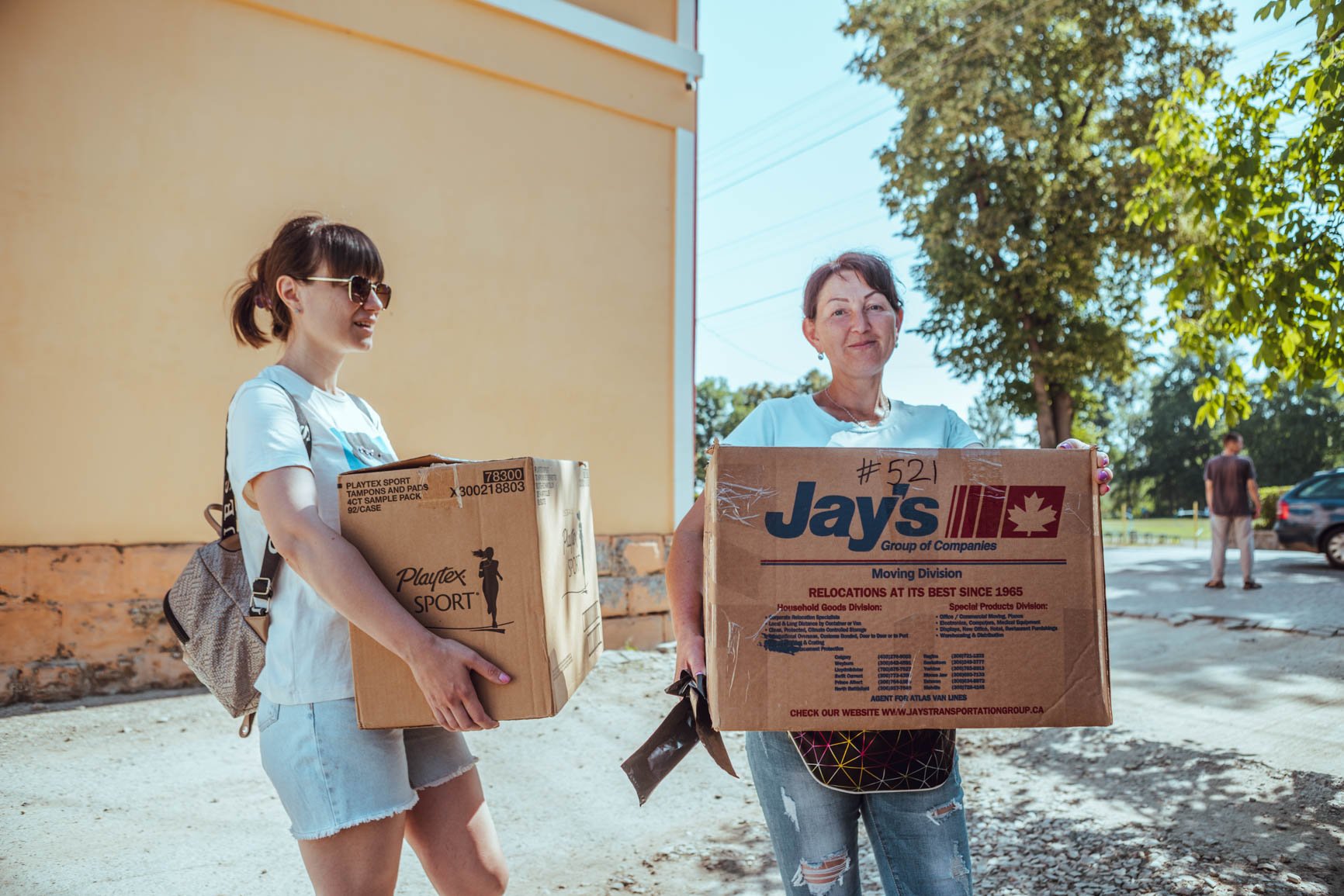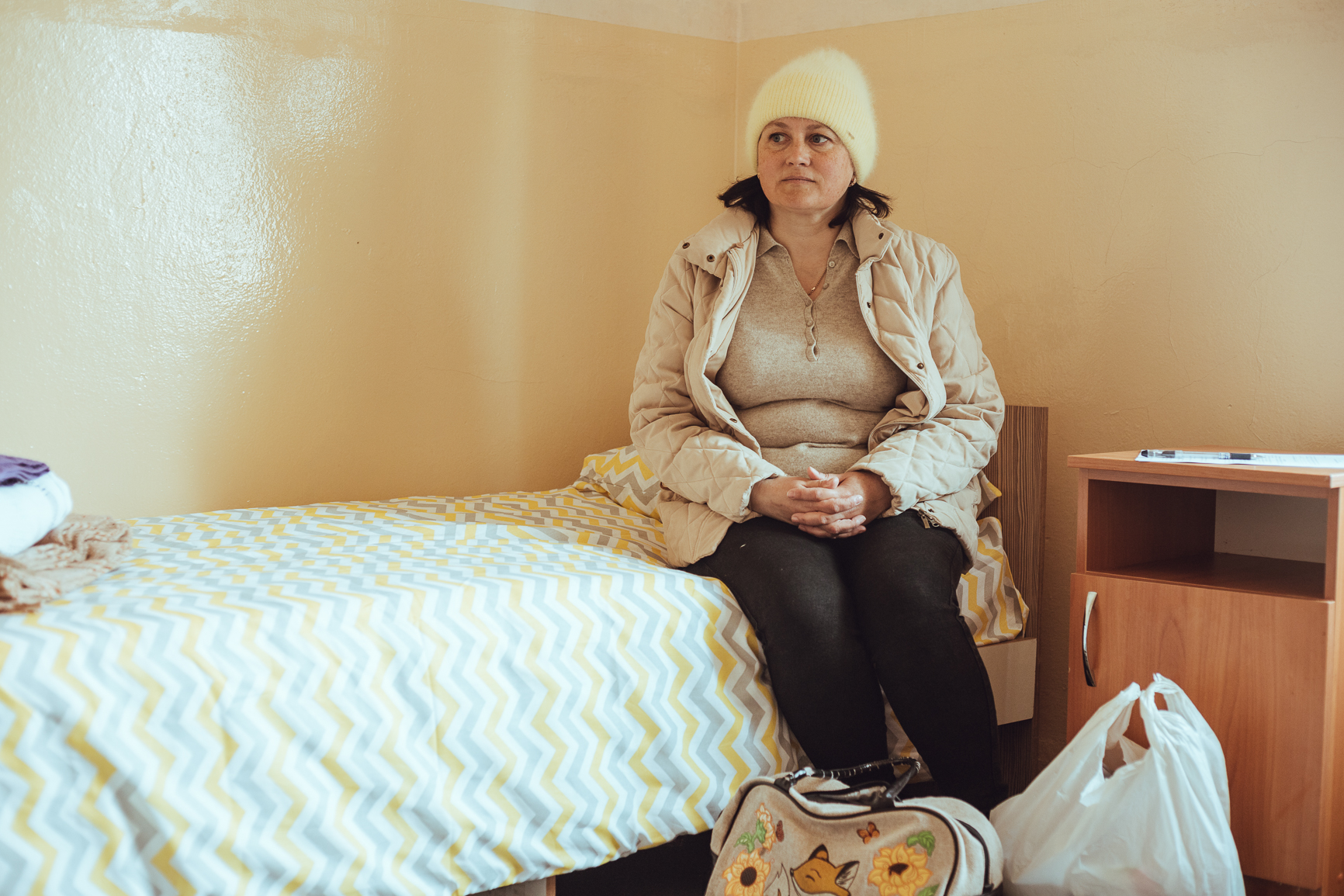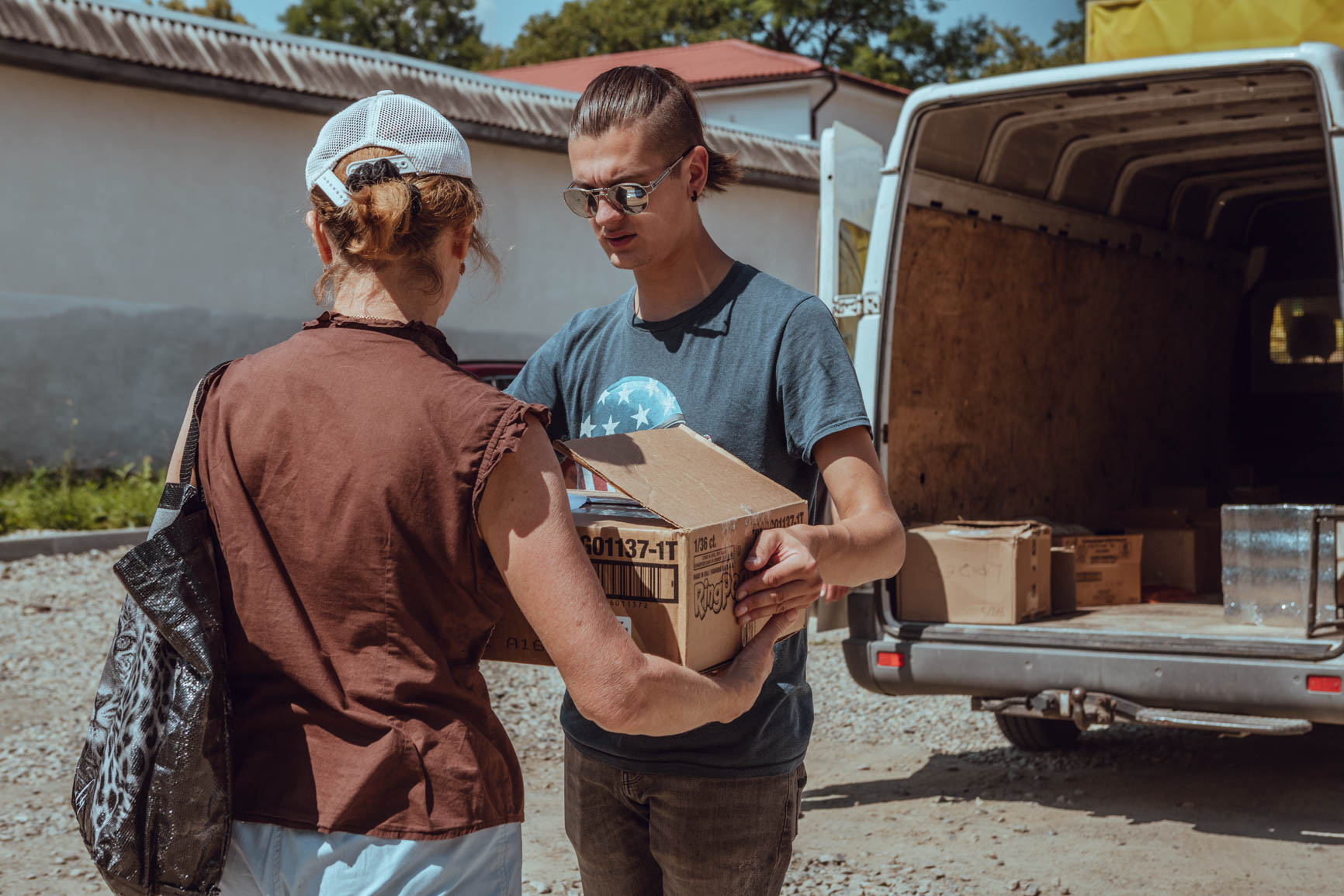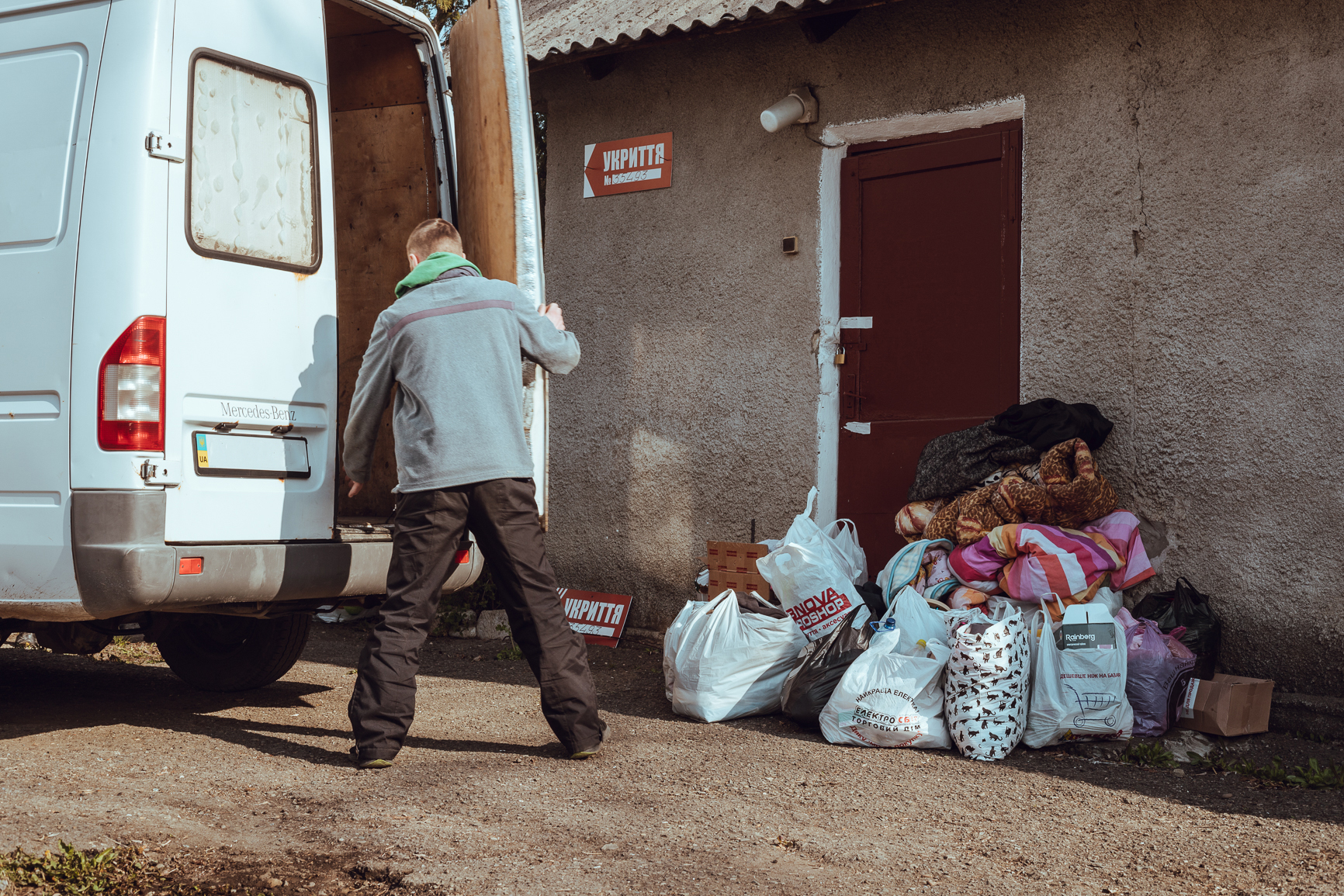
What is the problem?
Lack of housing and socialization
Since the beginning of russia's full-scale invasion, millions of Ukrainians have been forced to leave their homes. From the regions where active hostilities take place, people moved to the west — to safer cities, towns, and villages. Dnipropetrovsk, Kyiv, Lviv, Vinnytsia, and Poltava regions received the most internally displaced persons, and local communities continue to do their best to help the new arrivals. But the burden is often heavy for communities: for example, according to the Kolomyia City Council, 9,514 IDPs were registered in the community. In general, as of January 1, 60,821 people live in Kolomyia — that is, in just five months, the city's population has grown by a sixth. It is the largest number of the city's population in its entire history.
One of the challenges faced by IDPs and the communities where they arrive is socialization. After all, in order to get used to a new place, you need to socialize. The Vulyk Zmistiv team initiative decided to approach this problem comprehensively.
What is the solution?
Integration into the community
One of the project initiators, Solomiya Zinets, first dealt with the resettlement of displaced persons as a city council representative. However, according to her, there was a lack of a comprehensive approach, and the displaced people did not receive enough services to settle in a new place. Later, Ms. Solomiya got to know the settler from Kyiv, Vitaly Okhrimenko, who proposed to create a joint project to help the resettlers. From his own experience, Vitaly Okhrimenko knew about the difficulty of finding housing due to stereotypes about internally displaced persons, so he offered the project to provide not only help with housing but also with integration into the community.
Solomia Zinets, one of the project's initiators[/caption]
They called the volunteer project Vulyk Zmistiv (Beehive of senses – ed.), drawing an analogy with bees and honeycombs. According to this analogy, the directions of the project's activities are like individual honeycombs, thanks to which the bees, that is, the IDPs, will be realized: housing, work, hobbies, communication with residents, and education. The project is designed to help the displaced people establish their lives in a new place, step by step, "honeycomb by the honeycomb."
The name Vulyk Zmistiv has another meaning, the initiators say. Ukrainians are often compared to bees — hardworking, concerned, and caring. And bees do not provoke anyone and do not threaten anyone; they work on arranging their hives and extracting honey. As long as they are not touched, they become a formidable swarm, ready to destroy the enemy as soon as the bees are attacked.
How does it work?
The Vulyk Zmistiv social initiative is engaged in comprehensively helping displaced people. Since March, the two initiators have united a team of 12 people. However, they say that there is a shortage of workers from time to time, and now the initiative is at the stage of forming a team of volunteers — there are only a few of them at the moment.
"Many displaced people simply sit in old rural houses, do not go out, do not get to know anyone, and do not look for opportunities to socialize. They are waiting for their cities to be liberated and return home. We want to help them find new sense in new communities. The hive is really about that, not just housing. We have a cell that helps with the job search, and we are developing a plan to socialize these people. Especially those who got into deep villages," project communicator Olenka Geletiuk says.
Vulyk Zmistiv also helps resettlers to retrain and acquire modern professions, organizes networking, and provides psychological assistance. For example, recently displaced people were taught to write grant applications. An interactive event was held for children within the framework of the project Response to emergencies to meet the basic needs and protection needs of conflict-affected and displaced children and their families in Ukraine, implemented by the Youth Organization "STAN " in partnership with Save The Children International with the support of the European Commission's Directorate-General for Civil Protection and Humanitarian Aid (ECHO).
In a comprehensive approach, one of the initiative's main goals is socialization, that is, creating an environment in which everyone is comfortable, in which everyone will have sense. Areas of activity include housing search, furnishing, job search, legal and psychological assistance, informal classes, etc. But first, IDPs are provided with housing; for this, we formed a "housing bank."
How does the housing bank work?
In Vulyk Zmistiv, housing is searched separately according to the requests of each family, taking into account the number of people and the presence of children and pets. The housing base was expanded through a communication campaign with residents and cooperation with real estate companies that provide the base. Administrators of the center also monitor local chat rooms for housing searches. As soon as vacant apartments appear, displaced people are notified, and a person already suitable for this apartment contacts the owner.
"It is challenging to convey to people why they should let strangers from other regions into their homes or open the doors of those houses that are even empty," says the project's communicator.
Distrust among landlords is not a new phenomenon; it was the same in 2014 when there was the first wave of IDPs from Donbas. They are wary of various things: damaged property, rent evasion, misunderstandings, etc. The Kolomyia community is no exception. The Vulyk Zmistiv team has to communicate personally with biased landlords and explain the importance of renting.
The volunteer project works on safeguarding displaced persons and those ready to share their accommodation. The network of apartments is connected to a security company, and they offer to conclude a bilateral agreement on responsibility for the material property. The lessor and the settler put the lease terms into the contract. Funds from the project fund, formed from donations, are provided for minor breakdowns. In particular, the team attracts donor funds.
Finding housing is a long process, even with the help of volunteers. Therefore, Vulyk's team involved an entrepreneur who owns a hostel. Thanks to the cooperation, IDPs can live for free for two months, and Vulyk Zmistiv compensates the hostel for this with furniture, mattresses, and some equipment (see below for how the furniture bank works).
The project does not cover the rent for housing, and it undertakes to look for free housing if people cannot pay. The housing bank has different types of accommodation: apartments in good condition, some in need of repair, and houses. If for some reason, housing does not suit a person, Vulyk looks for another optimal option. There are primarily huts in the villages, but this is not always suitable for people, as there are no usual amenities. However, Vulyk proves that any problems can be solved.
Andriy and Tetyana came to Kolomyia from Sievierodonetsk in early April. They became one of the first to whom the Vulyk Zmistiv helped to find housing. At first, they were not going to leave their hometown, but when their home was damaged, they started looking for ways to evacuate.
"We stayed in Sievierodonetsk until we could. My daughter pulled me out of there because she constantly called and said: "Mom, pack your things, go. Mom, do you understand that there will be no city?" I was like, 'No, honey, I'll stay,'" Tetiana recalls.
The premises where the couple currently lives is in the private sector — a summer kitchen. The owner of this house went to Poland eight years ago, and all this time, the house was empty. When Andriy and Tetiana moved in, there was no furniture, and the water supply station was not working. Vulyk solved the problem with the furniture, and the water supply system was installed independently.
How does the furniture bank work?
Another division of Vulyk is the furniture bank, which provides displaced persons with the necessary furniture and equipment. Some of the furniture and mattresses are in the project's inventory from donors and people who initially donated them. If you need something you don't have in stock, you look for things on the Internet for free or at a reasonable price and then deliver them to people.
During the four months of work, according to the founder Solomiya Zinets, the project team saw that Vulyk began to be perceived as a real estate company. The Vulyk says that now people often call them not because they have nowhere to live but because they are looking for better conditions. Because of this, the project reviewed the target groups and decided to shift the focus. Earlier, the team worked a lot on creating conditions for those already in the city. Now, they want to focus on those who plan to move from hot spots and go into the unknown and on those who are ready to open the doors of their homes but still have some misconceptions about re-settlers.
How does the job bank work?
At the same time, it became clear that the needs of displaced persons are not limited to the search for housing. And as soon as this question is closed for them, some others are opened: "We realized that if people start thinking about changing their home, they have already settled down a bit, and the next question they face is socialization, adaptation, and money. Many cool specialists have appeared on the market and can help local businesses. If you look at it strategically, it can affect the city's development in general," says Olenka Heletiuk, a communicator.
Therefore, a month ago, a bank of vacancies appeared in the Vulyk Zmistiv. The team collected inquiries from joint Kolomyia and relaxed businesses about what specialists they are looking for, published about it in social networks and the media, and now began cooperating with the employment center. To introduce the business to potential employees, the project team initiated an offline event, Business of Content. Two resettled women work in this direction — Olena Potiyenko from Kyiv is engaged in service design, and Olena Rogova from the Chernihiv region processes the requests of resettlers and employers.
Does it really work?
In 4 months, the Vulyka Zmistiv team helped 86 families settle down. 110 are currently looking for housing. According to Olenka Geletiuk, these are mainly those who already have accommodation but are looking for another.
The Kolomyia "hive" is preparing for the second wave of settlements and is ready to accept resettled people in the event of an aggravation of the situation. In particular, work on the shelter's arrangement is currently underway. Volunteers of the Building Ukraine Together movement helped them — the team filled out the appropriate form and passed the selection process. Volunteers and the participants of the initiative started renovating the premises of the old kindergarten to equip a shelter there. It will accommodate approximately 70 people. Each family will have a separate room, and the conference hall will be shared. The shelter will be loyal to pets, and it will be possible to settle here with a pet without any problems.
Also, recently, Vulyk from Kolomyia held the first delivery of humanitarian aid abroad. The initiative formed individual boxes for specific requests of specific families — they were taken to Delyatyn and personally handed to those who needed help.
One of the indicators that the project works is that Vulyk has already started working in 2 towns. Kamianka-Buzka, in Lviv Oblast, is one of the cities where they work according to an almost similar principle, where the Vulyk Zmistiv started working a few days later than in Kolomyia.
Almost all the approaches of the Kolomyia project were applied here: settlement, legal, and psychological assistance. However, in Kamianets-Buzka, they did not start working with the job search and the furniture bank. The housing bank has private sectors, apartments, recreation centers, and communal facilities. Someone rents housing and someone rents it free of charge.
Andriy Korbetsky, one of the project's initiators in Kamianets-Buzka, says that the base has been developed since the beginning of the Vulyk Zmistiv in their city, as well as through social networks and realtors. Over 1,000 people were helped in 4 months with the settlement. They tried to offer to sign a lease agreement, but it did not inspire confidence in either the landlords or the settlers.
"We developed the same bilateral agreement, but there was no practice of signing it during this time. People have not yet matured and are afraid of tax burdens, etc. And misunderstandings happen, and our team is the referee in such situations. We try to reach an agreement, or if it doesn't work out, we look for another place to live," says Andriy Korbetsky.
A licensed psychologist works with the project. If needed, he is ready to help both online and offline free of charge. According to Andriy, there is no great demand for psychological help.
"We have been working with a psychologist for two months, and only about 50 people have contacted us during this time."
More useful solutions!
Where do I go if I want to help or need help?
Vulyk Zmistiv works as a free franchise. Communities that want to reproduce the initiative in their own country can contact the project through the official pages on social networks or the initiators. Therefore, they will receive instructions for implementation.
For questions regarding the settlement of IDPs, you can contact the following contacts:
Kolomyia, Ivano-Frankivsk region. Tel. 099-088-91-98
Kamianka-Buzka, Lviv region. Tel. 068-320-49-09
Khmelnyk, Vinnytsia region. Tel. 050-951-64-17, 068-161-62-76
Photo: Nazarii Yazhynsky
The material was published thanks to the support of the FOJO media institute.


